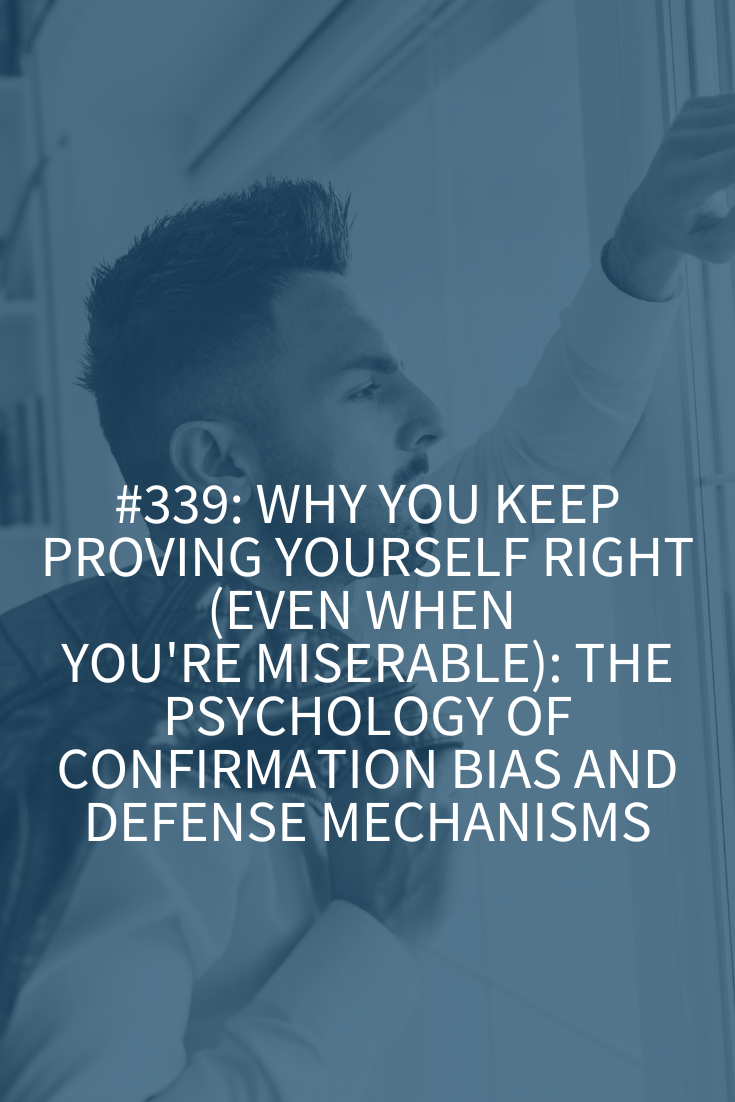
Love bombing gets a lot of attention and is usually discussed alongside narcissism or when we discuss trauma bonding. But what I’ve seen more often in my over 35 years of experience is something I call Attention Flooding, which can look like love bombing, but its origins are actually from codependency and feelings of low self-worth. Today I’m teaching you the difference between love bombing and Attention Flooding, the signs to look for, and my top three tips for building healthier and more fulfilling relationships based on mutual respect and genuine affection.
10-minute read
Back in episode 234, I taught you all about the seven stages of trauma bonding, and stage one, love bombing, is an area that gets a lot of attention. Love bombing is when, right away, you have a deep, intense connection with someone. Everything from the hours-long conversations to the sex is amazing! This is when one or both people are completely focused on winning the affection, attention, and love of the other person. There are often grand displays with extravagant dates or gifts.
A lot of times, love bombing is attached to narcissists or trauma. There’s a sinister character to the way it’s described as in, a narcissist will initially love bomb to “get you” but will then start gaslighting and trying to control you at every turn.
In my 40 years of experience, I’ve definitely seen love bombing like this, but there’s something else I see more commonly. It’s when someone is looking for validation from someone else, thus doing all the things that look like love bombing, but it’s from a lack of self-worth and codependency. It’s coming from a place of not feeling worthy of someone else’s love unless you’re doing for them. I see these types of behavior on a spectrum, from what I call Affection Flooding to Love Drizzles. We can call the whole thing Validation Precipitation since you know I like a catchy phrase you can remember.
Affection Flooding
“Affection Flooding” suggests that the codependent person is engulfing their partner with an avalanche of affection and attention, driven by their deep-seated need for validation and external affirmation. This can include those grand gestures like extravagant gifts, vacations, and saying “I love you” with a sky-writing plane, or always treating to great dinners and planning amazing dates. There’s still an intense and overwhelming experience, just like “Love Bombing,” but the root cause of the behavior is codependency. The person is seeking excessive reassurance from their partner, flooding them with affection and attention to fill the void of low self-worth and an over-reliance on external sources for validation. These actions are driven by a deep-seated need for validation rather than a grandiose sense of self-importance seen in narcissistic love bombing.
The Love Drizzle
Since Affection Flooding is hard to do all the time, the codependent person will often rely on the Love Drizzle, wanting doses of connection throughout the day. These include constantly thinking of things you can do for the other person and sending love-filled texts and hoping for a love-filled one back.
The problem with Affection Flooding or the Love Drizzles is that the feeling you get is short-lived. Unless the other person is codependent in the same way you are, the initial “in love” infatuation wears off (which is normal), but you’re left feeling abandoned, rejected, and even more inadequate than before. If you text your partner, “Just thinking of you and how lucky I am to have you in my life. I love you so much!” (followed by many emojis), but they’re busy at work and “only” text back, “Love you too!” (with one or no emojis) you feel deflated and worried.
To break free from this cycle, you need to work on your codependency, building your self-esteem, and establishing healthier relationship boundaries. Recognizing your worth as an individual, independent of external validation, is crucial for forming healthy connections with others.
Signs You Might Be on the Validation Precipitation Spectrum
Recognizing if you’re engaging in Affection Flooding or Love Drizzling, driven by codependency and low self-esteem, requires honest self-reflection. Here are signs to look for:
- You have a constant need for affirmation. You find yourself persistently seeking validation and approval from your partner and feel anxious or inadequate when you don’t receive it.
- You have a fear of them breaking up with you/abandoning you. An intense fear of being abandoned or rejected by your partner, to the point of being overly accommodating or compromising your values, could indicate that you’re seeking validation to avoid feelings of unworthiness.
- You get the “in trouble” feeling easily. If things aren’t going along exactly as you’d like, you get that uneasy feeling in your tummy that something is off, and it’s hard to stay focused on anything else.
- There’s an intensity all the time in how you feel about this person. Maybe you use intense language to express your affection or admiration. This often leads to an atmosphere of idealizing your partner.
- There’s a feeling of rapid escalation in this (and likely all) your relationships. You hear a lot from others that you’re moving too fast, or you notice yourself moving from dating to “I love you” to moving in/engagement/marriage rapidly.
- Related to this, you expect a very quick turnaround in answering texts or calling.
- You might lose yourself in the relationship. You want a lot of attention from your partner and give a lot of attention to your partner, often to the exclusion of other things. You might stop doing things you used to enjoy to spend more time with them or expect them to do the same. Their place in your life isn’t balanced.
- You love to find special things for your partner. This might be an extravagant gift or vacation, but it could also be buying cards for them “just because.” You’re always on the lookout for ways to show them that you’re thinking of them or ways to make their life easier.
- You don’t ask for what you need often or at all and will even neglect your own needs while prioritizing your partner’s happiness and goals. You find it challenging to communicate your needs and desires openly for fear of disappointing your partner or risking their rejection. Heck, you might not even realize that you have needs!
- Extreme sensitivity to rejection. Feeling devastated or crushed by minor rejections or criticisms from your partner and taking them as a personal attack on your self-worth.
Of course, needing occasional validation and affection is normal in a healthy relationship. However, when these signs become persistent and start affecting your emotional well-being or the balance in the relationship, it may be time to reflect on whether codependency and low self-esteem are influencing your behavior.
Five Reasons You Might Be on the Validation Precipitation Continuum
Low self-esteem and seeking validation from others can arise from many different factors, but here are five common reasons why some people may have low self-esteem and look to others for validation:
- Childhood Experiences: Early experiences during childhood can significantly impact a person’s self-esteem. Negative or critical parenting, emotional neglect, abuse, or a lack of positive reinforcement may lead to feelings of inadequacy and a constant need for external validation to feel worthy.
- Past Trauma or Abuse: Individuals who have experienced trauma or abuse, such as physical, emotional, or sexual abuse, may internalize feelings of shame and unworthiness. Seeking validation from others becomes a coping mechanism to numb or escape from the pain caused by the trauma.
- Comparisons and Social Media: In today’s interconnected world, constant comparisons to others, particularly on social media, can erode self-esteem. People may feel inadequate when comparing their lives to the seemingly perfect and curated images presented by others, leading them to seek validation to feel valued and accepted.
- Lack of Positive Role Models: Growing up without positive role models or lacking healthy relationships in their lives may lead individuals to doubt their self-worth. They may seek validation from others to fill the void left by the absence of supportive figures.
- Unrealistic Standards and Perfectionism: Setting excessively high standards for yourself and constantly striving for perfection can result in feelings of failure and inadequacy. Seeking validation becomes a way to validate your efforts and accomplishments, even though they may be excellent by objective standards.
It’s essential to note that these reasons are interconnected and can reinforce each other, creating a cycle that perpetuates low self-esteem and the need for external validation. Addressing these issues often requires introspection, self-compassion, and seeking therapy or other support to work through past traumas, challenge negative thought patterns, and develop a healthier sense of self-worth.
Top Three Tips for Relationship Balance and Loving Connection
Dealing with Affection Flooding or Love Drizzling, which stems from codependency and low self-esteem, requires self-awareness, commitment, and a willingness to work on personal growth. Here are my top three tips to help you address wherever you might be on the Validation Precipitation Scale and develop healthier relationship dynamics:
Tip #1: Develop Your Self-Awareness
If you’ve been having some “aha” moments today, good for you. You’re increasing your self-awareness. But that can’t stop here! If you’re not self-aware and practicing mindfulness throughout your day, you won’t catch yourself when you’re Affection Flooding, and definitely not when you’re low-key Love Drizzling.
In addition to the more in-depth tips I give in earlier episodes, here are some to get you started on your self-awareness/mindfulness journey:
- Journaling: Keep a journal to explore your feelings, behaviors, and past experiences that might contribute to low self-esteem and codependency. Writing can help you gain clarity and insights into your thought patterns.
- Seek feedback: Ask for feedback from trusted friends or family about your relationship dynamics and behavior. Their perspectives can offer valuable insights into areas you may need to work on.
- Therapy or counseling: Consider seeking professional help from a therapist specializing in codependency. A trained professional can guide you through self-discovery and help you understand the root causes of your behavior.
- Download the Mindfulness Starter Kit and make mindfulness a daily habit
Tip #2: Practice Self-Compassion
Be gentle with yourself as you acknowledge and address this pattern. Recognize that seeking validation from others is a common human experience, and it does not define your worth. Cultivate self-compassion by treating yourself with the same kindness and understanding you would offer to a friend facing similar challenges.
In addition to the more in-depth tips I give in my earlier episode on self-compassion, here are some to get you started on your self-compassion journey:
- Practice positive self-talk: Challenge negative self-perceptions and replace self-critical thoughts with kind and affirming statements. Treat yourself as you would treat a supportive friend.
- Start every day with positive momentum and do your best to stay in charge of your thoughts throughout the day.
- Practice a Loving Kindness Meditation consistently (start by doing it daily for one week).
Tip #3: Build Your Confidence and Self-Esteem
Work on building a positive and healthy sense of self-worth as well as your self-confidence.
In addition to the more in-depth tips I give in my earlier episode on building self-confidence and self-esteem, here are some to get you started on your confidence and self-esteem journey:
- Celebrate accomplishments: Acknowledge and celebrate even the smallest achievements, and give yourself credit for your efforts. Celebrating progress can boost your self-esteem.
- Surround yourself with positivity: Spend time with people who uplift and support you. Avoid relationships that drain your energy or make you feel unworthy.
- Practice self-care: Take care of your physical and emotional well-being. Engage in activities that bring you joy, relaxation, and a sense of accomplishment.
Remember that change takes time and effort, and it’s okay to progress at your own pace. Celebrate your small victories and be patient with yourself as you work towards building healthier and more fulfilling relationships based on mutual respect and genuine affection.
Resources for Is it Love Bombing or Codependent Affection Flooding?
Are you Trauma Bonding In Your Relationships and Don’t Realize It?
Shame: The Silent Killer in Relationships
How Childhood Trauma Affects Relationships
You Might Not Realize You’re Suffering from Unhealed Trauma
Stop Phubbing and Start Connecting
Seven Tips for Dealing with Technology in Your Relationships
Gaslighting: Signs You’re Being Manipulated
How to Stop Being a Perfectionist So You Can Start Being Happy
Four Ways to Be More Self-Aware
How to Make Mindfulness a Habit
How to Get Out of Negative Thinking
Is Self-Compassion the Secret to a Happy Relationship
Guided Visualization to Stop Negative Thinking
Loving Kindness Guided Meditation: Finding the Love
The Best Way to Start Your Day






